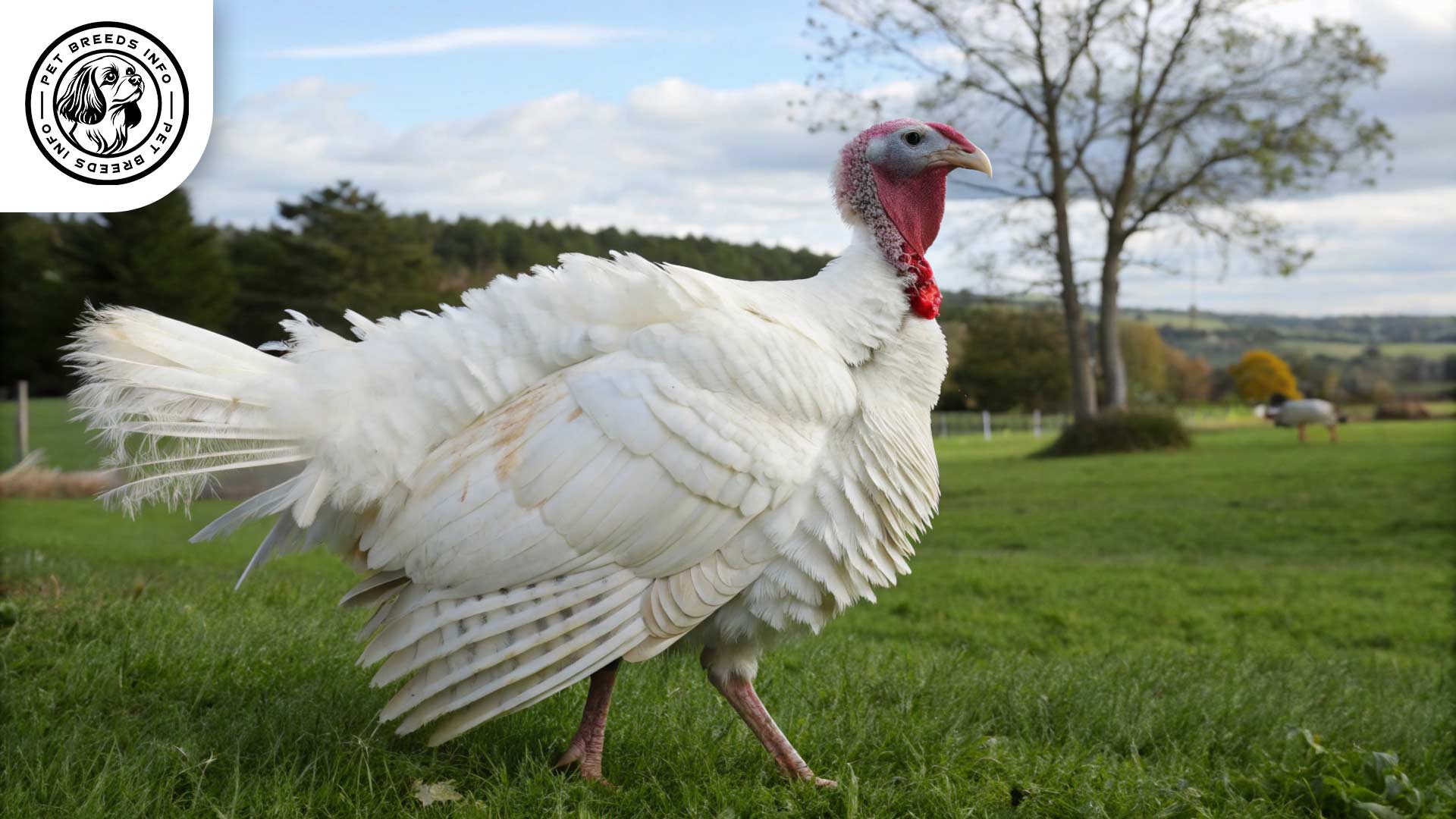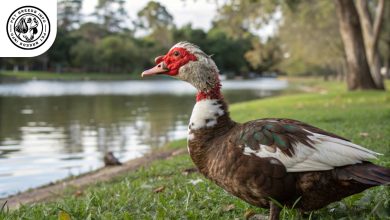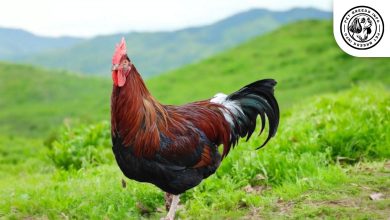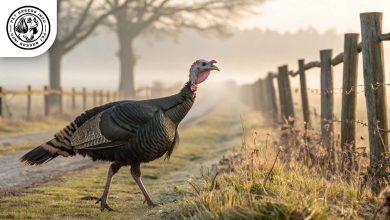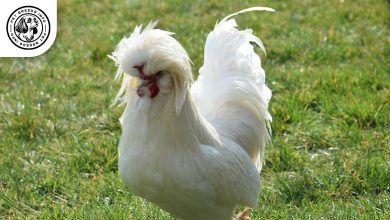Broad Breasted White Turkey Breed: Personality, Lifespan, Food & Care
General Introduction of the Breed
The Broad Breasted White Turkey is one of the most common domesticated turkey breeds, primarily raised for meat production. This breed is known for its rapid growth, large size, and white feathers, which give it a clean appearance after processing.
This breed originates from the United States and was developed to meet the increasing demand for turkey meat. It was selectively bred for its large breast size and efficient feed conversion, making it a staple of the poultry industry.
Table of Contents
| Common Name | Broad Breasted White Turkey |
| Scientific Name | Meleagris gallopavo domesticus |
| Origin | United States |
| Size | Toms: 30–40 lbs (13–18 kg); Hens: 15–25 lbs (7–11 kg) |
| Lifespan | 16–24 weeks (commercial lifespan) |
| Primary Purpose | Meat production |
| Temperament | Docile, social, low energy |
| Cold-Hardy | Moderately (better suited to temperate climates) |
Physical Characteristics
The Broad Breasted White Turkey is a large bird with a broad chest and short legs. Males, or toms, typically weigh between 30 to 40 pounds (13 to 18 kg), while females, or hens, weigh around 15 to 25 pounds (7 to 11 kg).
Its feathers are completely white, which helps reduce visible pinfeathers after processing. The beak is light pink or ivory in color, and the snood and wattle are bright red.
The eyes are dark and round, giving the turkey a distinctive gaze. The tail is broad and fan-like when fanned out.
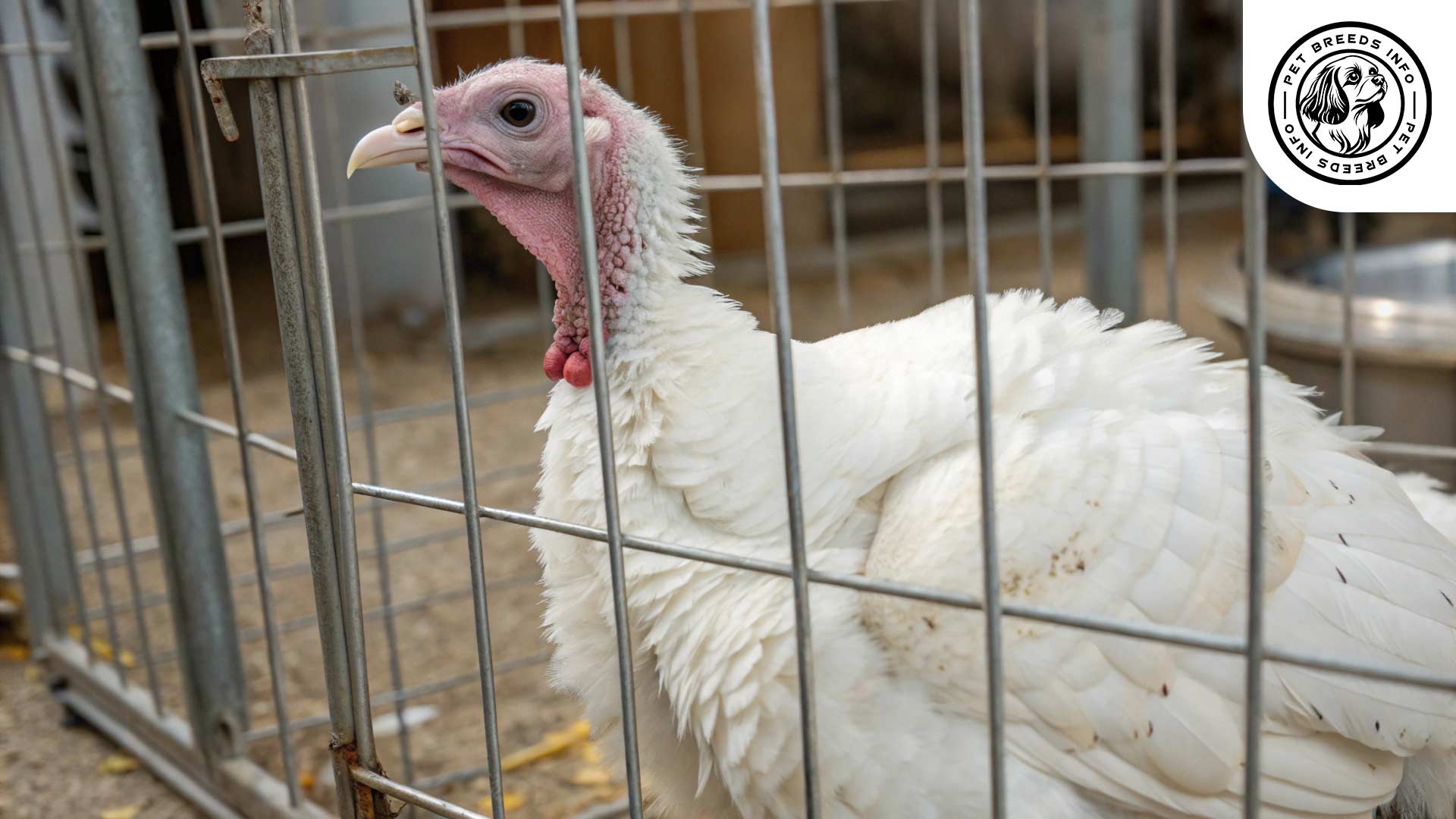
Personality and Temperament
This breed is not known for high intelligence compared to other birds but is generally easy to care for with proper management.
They have moderate energy levels, and while they are not overly active, they do enjoy foraging and exploring their surroundings.
Due to their docile nature, they are comfortable around humans but are primarily bred for meat rather than as pets.
Read More: Scarlet Macaw Bird
Broad Breasted White Turkeys are highly social with other members of their flock but can be vulnerable to bullying if housed with more aggressive poultry species.
Care and Maintenance Requirements
Due to their size, they require ample space to move around. Confinement for extended periods can lead to health issues such as joint problems.
A well-ventilated and clean poultry house is essential. Bedding should be replaced regularly to prevent infections.
They do not require much grooming but should be monitored for any signs of feather pecking or mite infestations.
Broad Breasted White Turkeys are sensitive to extreme weather conditions, especially high heat, which can contribute to heat stress.
Basic hygiene, including clean water sources and properly balanced feed, is necessary for preventing diseases.
Diet and Nutrition
A high-protein diet is essential for their rapid growth. Commercial poultry feed specifically formulated for turkeys works best.
They should have access to fresh water at all times to prevent dehydration.
Avoid giving them processed human food, excessive corn, or food with high fat content, as this can lead to obesity.
Since this breed is bred for a short lifespan, portion control may not be a major concern, but access to a well-balanced diet will ensure proper weight gain.
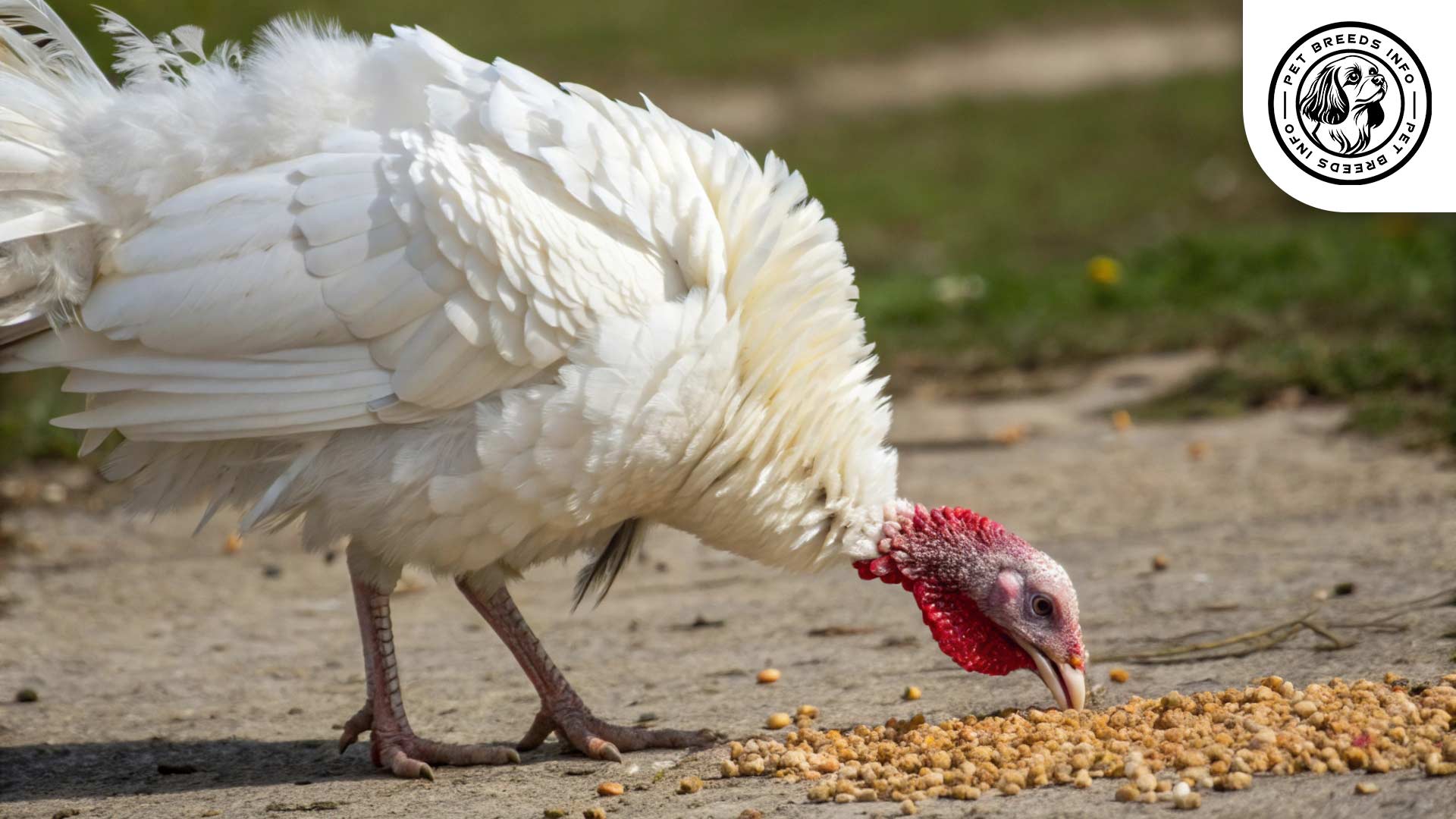
Health and Common Medical Issues
Due to their large size, Broad Breasted White Turkeys are prone to leg problems, particularly leg deformities and joint issues.
They are also susceptible to respiratory diseases, especially if housed in poorly ventilated areas.
Read More: Timneh African Grey Bird
Heat stress is a major concern in warmer climates, so proper cooling measures are necessary.
The average lifespan of these turkeys is relatively short, typically around 16 to 24 weeks, as they are primarily raised for meat.
Regular vaccinations, such as those for Newcastle disease and fowl cholera, are recommended.

Training and Behavior Management
This breed does not require extensive training as they are primarily raised for meat production.
Early socialization with their flock ensures they remain calm and stress-free.
Providing a structured feeding schedule can help maintain their overall growth and health.
Interaction with Other Animals and Humans
Broad Breasted White Turkeys are generally peaceful and can coexist with other turkeys. However, they may be vulnerable to aggressive poultry such as roosters.
They are not typically raised as pets but can become accustomed to human interaction if handled regularly.
Families raising them for meat farming should consider their space requirements and feeding needs before keeping them.
Read More: Galah Cockatoo Bird
Price and Availability
Broad Breasted White Turkeys are widely available through hatcheries, farm supply stores, and poultry breeders.
The cost of a poult (baby turkey) ranges from $5 to $15, depending on the hatchery and location.
When purchasing, ensure that poults are from a reputable source with good health records.
Conclusion and Final Thoughts
The Broad Breasted White Turkey is an excellent choice for commercial poultry farmers due to its rapid growth and high meat yield.
However, its short lifespan and health challenges mean it is not well-suited as a long-term pet.
Farmers and poultry enthusiasts should provide ample space, proper nutrition, and good hygiene to ensure healthy growth.
For those considering raising turkeys for meat, this breed is among the most efficient and profitable options.
FAQ
How big does a Broad Breasted White Turkey get?
Males reach 30–40 lbs, females 15–25 lbs.
What is the lifespan of a Broad Breasted White Turkey?
Broad Breasted White Turkeys live about 16–24 weeks.
Are Broad Breasted White Turkeys good for beginners?
Yes, Broad Breasted White Turkeys are easy to raise but need space and care.
Can Broad Breasted White Turkeys be kept as pets?
Broad Breasted White Turkeys aren’t ideal pets due to size and short lifespan.
